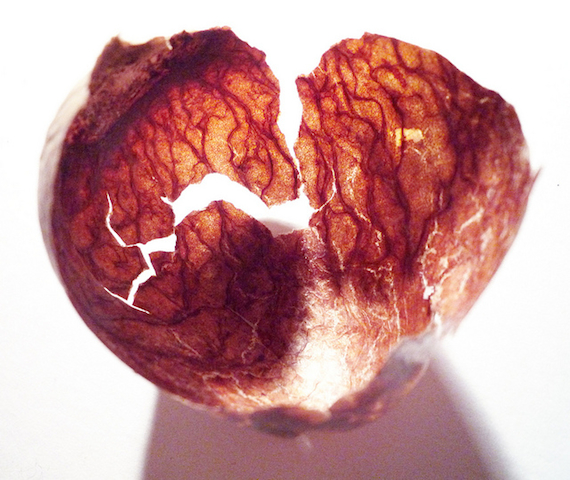
Perhaps you have just ended a blistering affair. Perhaps you have just discovered your significant other’s blistering affair. Perhaps you are contemplating embarking on one – or ejecting from one. These three books will help.
 If it is your own affair you are concerned with, consider turning to A Vindication of Love: Reclaiming Romance for the Twenty-First Century by Christina Nehring. Nehring looks at love in its myriad forms through the lives and creations of writers, poets, philosophers, and artists, many of whom were rather badly – or let us say unconventionally – behaved.
If it is your own affair you are concerned with, consider turning to A Vindication of Love: Reclaiming Romance for the Twenty-First Century by Christina Nehring. Nehring looks at love in its myriad forms through the lives and creations of writers, poets, philosophers, and artists, many of whom were rather badly – or let us say unconventionally – behaved.
Start with the chapter “Love as Transgression,” which helps explain how and why love often arises “out of obstruction and illegitimacy.” Think Romeo and Juliet, the antagonists in Les liaisons dangereuses, Madame Bovary, and, of course, Anna Karenina. But “Love as Transgression” tells the story of the mythological 12th century lovers Tristan and Iseult. Kept apart by marriages to other people, imprisonment and self-imposed exile (Tristan was a knight after all) they kept finding ways to come together anyway – through disguises, secret trysts, an escape to a nearby forest, and, finally, a deathbed reunion. They knew that love “is about breaking boundaries between people and about breaking boundaries of propriety.” And that love “is always against something as ardently as it is for somebody.” But after all that passion, all that breakage, sometimes you are left with only wreckage. And that is the time to read the chapter “Love as Failure.”
You might also read “Love as Failure” if you find yourself on the losing end of an affair. “Most great passions, in some sense, are failures,” Nehring writes. Consider Dante, Petrarch, Madame Butterfly, Carmen. Or Abelard, the medieval scholar who made love with his student Heloise (“My hands strayed oftener to her bosom than to the pages; love drew our eyes to look on each other more than reading kept them on our texts … Our desires left no stage of lovemaking untried …”) until he is castrated by her enraged uncle, joins a monastery, and persuades Heloise to enter a convent. After twelve years of silence between them, Heloise writes him a letter, and a new chapter of their spectacularly failed love begins – “Abelard responds to her in a way he has never responded to another human being in his life … with intimate reflections and ambitious theories, hymns and precepts, prayers and sermons … [and] Abelard’s dying wish was to be buried near Heloise.” Who knows what will spring from catastrophe?
 This question is nearly impossible to answer when the catastrophe is fresh. Emma Straub’s tart new novel, The Vacationers, is a very different sort of book – a potential beach-read as much as a primer on affairs and their recovery – where we learn on the very first page that Jim Post has transgressed. Packing for a two-week family vacation on the island of Mallorca, he wishes he could leave out “the last year of his life … the way Franny looked at him across the dinner table at night; the feeling of himself inside a new mouth for the first time in three decades … the emptiness waiting on the other side of the return flight, the blank days he would have to fill and fill and fill.” Details of his affair are revealed slowly, as are the affairs of nearly everyone else in the book: Jim’s son Bobby, Franny’s best friend Chuck, and Jim and Franny’s daughter Sylvia’s traitorous best friend.
This question is nearly impossible to answer when the catastrophe is fresh. Emma Straub’s tart new novel, The Vacationers, is a very different sort of book – a potential beach-read as much as a primer on affairs and their recovery – where we learn on the very first page that Jim Post has transgressed. Packing for a two-week family vacation on the island of Mallorca, he wishes he could leave out “the last year of his life … the way Franny looked at him across the dinner table at night; the feeling of himself inside a new mouth for the first time in three decades … the emptiness waiting on the other side of the return flight, the blank days he would have to fill and fill and fill.” Details of his affair are revealed slowly, as are the affairs of nearly everyone else in the book: Jim’s son Bobby, Franny’s best friend Chuck, and Jim and Franny’s daughter Sylvia’s traitorous best friend.
There is temperance and understanding – “Marriage is hard. Relationships are hard … We’ve all done things.” – as well as raw anger and blunt perspective – “Yes, we’ve all done things. I’ve done things like put on thirty pounds. He’s done things like put his penis inside a twenty-three-year-old. Don’t you think one of those is significantly worse?” Read The Vacationers if you want your tragedy leavened with a bit of farce, your compassion enlivened with a bit of acid, your lack of forgiveness tempered with an abiding love. “The human heart [is] a complex organ at any age,” Straub reminds us, and then guides us through its chambers.
 And then there is Anna Karenina. Of course there is Anna Karenina. There is also Flaubert’s Madame Bovary or Graham Greene’s The End of the Affair or Robert James Waller’s The Bridges of Madison County (remember that craziness?). But if you really want to get over an affair, to see an affair clearly from start to finish, to see what wind fills its sails and what trash lies in its wake, surrender yourself to 817 pages of gorgeous, harrowing, revelatory Tolstoy.
And then there is Anna Karenina. Of course there is Anna Karenina. There is also Flaubert’s Madame Bovary or Graham Greene’s The End of the Affair or Robert James Waller’s The Bridges of Madison County (remember that craziness?). But if you really want to get over an affair, to see an affair clearly from start to finish, to see what wind fills its sails and what trash lies in its wake, surrender yourself to 817 pages of gorgeous, harrowing, revelatory Tolstoy.
We all know the shorthand version: girl meets boy, girl (thinks she) loses boy, girl meets train. But that is only one layer of this matrëška of love and loss. Before we meet Anna, before we meet Vronsky, on the very first page and in the very second sentence we are plunged into a family’s chaos because of an affair: “The wife had found out that the husband was having an affair with their former French governess …” And thus begins Anna’s sister-in-law Darya Alexandrovna Oblonskya’s story of anguish, disappointment, resignation, and transcendence. Anna’s story begins soon after, when she meets Vronsky, who provokes in her “a strange feeling of pleasure” as well as “a fear of something.” She is right to be both pleased and afraid, for she and Vronsky will embark on an affair that leaves more than a few casualties in its wake: an abandoned spouse, two abandoned children, a ruined career, a tarnished innocence, two suicide attempts (one of them successful); at least six hearts bruised, broken, shot at or run over. Orbiting around this dark sun are the lesser affairs of Anna’s brother Oblonsky, Levin’s brother’s relationship with a former prostitute, Levin’s own dalliances before his marriage to Kitty, the delicate dance that leads to Kitty’s friend Varenka’s almost-proposal, and various flirtations and trysts in their social circle.
What Tolstoy does so beautifully is show all the ups and down of an affair, from the childlike glee that illuminates a woman in love (“‘It’s late now, late, late,’ she whispered with a smile. She lay for a long time motionless, her eyes open, at it seemed to her that she herself could see them shining in the darkness.”) to the strange internal transformations obsessive love can bring (“What is that on the armrest – a fur coat or some animal? And what am I? Myself or someone else?”).
Whatever state of an affair you are in – the electrical beginning, the increasingly complicated middle, the bang or the whimper of the end, the terrible discovery of someone else’s affair or the arid time that comes before the next, the lovers in Anna Karenina will walk with you, teach you, warn you, encourage and console you. If you want to read how artists and their creations navigated these treacherous waters, try A Vindication of Love. But if a Spanish beach or private pool is more your speed, kick back with The Vacationers. For an acute case, read all three.
Image via rvoegtli/Flickr









